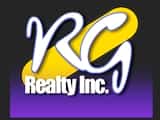Commercial real estate plays a key role in the investment market. Accurate valuation is critical for making informed decisions. Two primary valuation methods—asset valuation and income valuation—offer unique insights. Each approach serves distinct purposes depending on the property and investment goals.
Understanding Asset Valuation
Asset valuation determines a property’s worth based on tangible factors, such as the building’s physical characteristics and location. Market comparables, which compare similar recently sold properties, also help establish value.
Two main methods define asset valuation. The market approach evaluates properties against comparable sales. The cost approach estimates value based on replacement or reconstruction costs while adjusting for depreciation.
This method is beneficial for properties with limited revenue potential. In truth, it is widely used for undeveloped land or buildings needing renovation. However, asset valuation does not consider a property’s income-generating potential. With this in mind, investors must be cautious during volatile markets.
The Role of Professional Teams in Commercial Real Estate Valuation
Valuing real estate involves collaboration with professionals to ensure accurate assessments—various factors, including physical condition, market trends, and income potential, influence a property’s worth. Investors and developers may rely on appraisers, financial analysts, and property managers to interpret data and provide reliable valuations. These professionals bring specialized knowledge of valuation methods, legal requirements, and market dynamics.
An often overlooked but important aspect of valuation involves the role of moving. When businesses or tenants relocate, especially over long distances, it can influence a property’s income potential, vacancy rates, and operational costs. In fact, many of the most common challenges of moving a business to another state—from logistics to downtime—can have direct ripple effects on property performance. For example, the commercial relocation itself may signal broader economic shifts, such as growth in a specific area or changes in demand for commercial space, which can affect the property’s future market value. Conversely, a decline or closure of a business may suggest downturns in the local economy, affecting long-term property projections.
Property stakeholders can effectively navigate valuation complexities by engaging the right experts and considering external factors. Collaboration ensures more precise decisions, ultimately benefiting the investment’s long-term success.

Diving Into Income Valuation
Income valuation measures a property’s ability to generate revenue. This method is ideal for properties producing consistent cash flow, such as office buildings or retail spaces.
There are two primary income valuation methods. The direct capitalization method applies a capitalization rate to the property’s Net Operating Income (NOI). The discounted cash flow (DCF) method evaluates projected cash flows over time and calculates their present value.
Income valuation offers insights into profitability and growth potential. In short, it is suited for long-term investment analysis. Nevertheless, it depends on accurate income projections and cap rate calculations. Errors in these estimates can significantly affect results.
Commercial Real Estate Applications
The application of each method varies based on property type and market conditions. Asset valuation is appropriate for redeveloped properties or vacant lots with no income stream. In contrast, income valuation is ideal for leased properties, providing stable income.
Hybrid approaches combine these methods to enhance accuracy. For example, a developer might use asset valuation for the land while employing income valuation for potential rental returns.
As an illustration, consider a vacant office building versus a leased retail center. The vacant property might rely heavily on asset valuation, while the retail center would use income valuation to reflect cash flow potential.

Comparing Asset Valuation and Income Valuation
Both valuation methods offer distinct perspectives. Asset valuation focuses on tangible characteristics like structure and location. In contrast, income valuation emphasizes profitability and financial forecasts.
Market dynamics heavily influence both methods. Asset valuation relies on current market trends, while income valuation anticipates future cash flow changes. Investors should weigh these differences carefully.
Another key point is accuracy. Asset valuation works best with reliable market comparables, while income valuation depends on precise financial data, such as rental income and operational costs.
Challenges in Valuing Commercial Real Estate
Valuing commercial real estate comes with challenges. Market volatility can distort property values, affecting both methods. Reliable data can also be limited, particularly for income valuation, where future projections are critical.
External factors, such as tax regulations and zoning laws, further complicate valuation efforts. Besides, global influences like exchange rates and foreign investments impact property markets. These factors must be considered in any valuation approach.
Choosing the Right Approach
The choice between asset and income valuation depends on specific needs. Investors focusing on short-term gains may prefer asset valuation, while those seeking long-term profitability rely on income valuation.
The property type also matters. Asset valuation benefits vacant lots or redevelopment projects. Income valuation suits leased properties generating stable revenue. Considering these factors, combining methods can improve decision-making.
Practical tips include cross-verifying valuations using multiple approaches. Staying informed about market trends also helps refine property assessments. In short, an informed approach ensures better investment decisions.
Emerging Trends Impacting Real Estate Valuation
Technological advancements like data analytics and artificial intelligence transform how appraisers and analysts assess properties. These tools enable faster, more accurate evaluations by providing insights into market trends, tenant demographics, and property performance.
Sustainability initiatives are also gaining prominence. Properties with energy-efficient designs, renewable energy systems, or green certifications often command higher values. Investors recognize eco-friendly buildings’ cost savings and long-term appeal, influencing income projections and asset appraisals.
Market behavior adds another layer of complexity. Shifting demands, such as the rise of remote work, have redefined the value of office spaces. Conversely, logistics and industrial properties are surging due to increased e-commerce activity.

Summary
Both asset valuation and income valuation are vital for assessing commercial real estate. Each method offers unique insights based on property type and investment goals. By understanding their strengths and limitations, investors can make better decisions. In contrast, relying solely on one approach may lead to incomplete valuations. Accurate assessments help unlock the full potential of commercial real estate investments. Staying informed and flexible ensures success in a competitive market.
- https://www.pexels.com/photo/man-sitting-in-front-of-computer-380769/
- https://www.pexels.com/photo/gray-office-rolling-chair-near-brown-wooden-desk-in-front-of-flat-screen-tv-on-white-painted-wall-37347/
- https://www.pexels.com/photo/photo-of-man-holding-a-book-927022/
4. https://www.pexels.com/photo/white-rolling-armchair-beside-table-1957478


